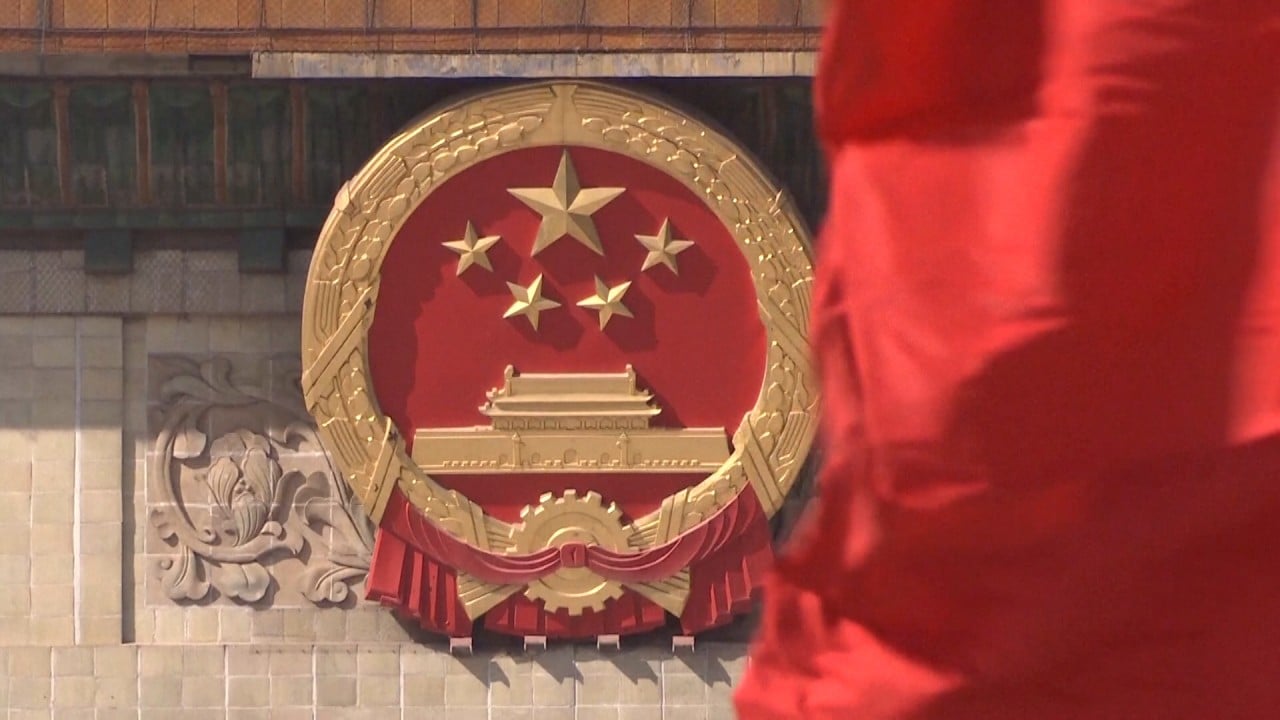
National security law: strikes and threats will not intimidate Hong Kong officials into dropping support for Beijing legislation, government says
- Government refuses to back down over the proposed Beijing legislation after activists threaten mass walkout
- Labour unions and student groups are building support for unsanctioned referendum on boycotting work and class
A government spokesman on Sunday condemned labour unions and student groups for planning to skip work and classes if at least 60,000 people took part in a “referendum” on June 14 and 60 per cent endorsed the action.
“No body or organisation will succeed in using extreme means to intimidate the city’s government,” the spokesman said.
Justice chief allays mainland interference fears over national security law
China’s legislature, the National People’s Congress (NPC), last month passed a resolution authorising its standing committee to impose the law on Hong Kong to outlaw secession, subversion of state power, terrorism and foreign interference in the city.
But opposition politicians and critics have warned it could be used to suppress dissent and erode long-standing freedoms.
Appealing to the public to get behind the legislation, the government spokesman said: “We strongly condemn some organisations’ call for a referendum on a strike and class boycott.
“Since last year, some people publicly advocated Hong Kong’s ‘independence’, ‘self-determination’ and ‘referendum’ … But under the Basic Law, there is no system of referendum in Hong Kong. Referendums would have no constitutional basis and legal power.”

Earlier, Hong Kong’s deputy leader hit out at activists trying to collect signatures from students in opposition to the security law, saying that schools must not be used as venues to express political demands.
Writing on his official blog, Chief Secretary Matthew Cheung Kin-chung also said the legislation would bring “stability, safety and security” to Hong Kong, and other sectors should actively express their opinion as the central government promised to listen through different channels.
“If Hong Kong continues to be unstable … all talks and efforts [to boost the economy] will be in vain,” he stated.
How can people trust that when the national security law is passed, they will still enjoy the right to express themselves peacefully?
Of the activists collecting student signatures, Cheung said: “These organisers … are obviously using students to achieve political goals.
“No one should use schools as venues for expressing political demands, nor incite students, especially those in primary and secondary schools, to have a stance or take action on controversial or developing political incidents.”
But Isaac Cheng Ka-long, one of the campaign organisers, countered on a television programme on Sunday that he could not understand why Cheung wanted to stop students from expressing their views peacefully.
“The government is already condemning people for expressing their views. How can people trust that when the national security law is passed, they will still enjoy the right to express themselves peacefully?” he argued.

02:23
Beijing remains ‘very firm’ on national security law for Hong Kong, says city’s leader Carrie Lam
Democratic Party founding chairman Martin Lee Chu-ming, speaking on another programme, accused Beijing of insincerity in saying it was listening to public opinion.
“Do you think they really want opinions? They made a decision and will do it … They just want you to kneel down and support them in doing something that destroys the Basic Law, which states that only the Legislative Council can make laws for Hong Kong,” he said.
Labour unions organising the strike have argued that the national security legislation was a draconian law that would devastate the local economy.
How Beijing’s plan for security law caught Hong Kong deputies off guard
But Financial Secretary Paul Chan Mo-po, also writing on his official blog on Sunday, said as long as Hong Kong remained free, safe and stable, people would come to do business, adding the national security legislation would not undermine the city’s ability to attract talented personnel from around the world.
“Hong Kong has its unique attractions as it values the rule of law, and is diversified and tolerant,” he said.
Chan also warned that any measure to challenge Hong Kong’s financial system would deal a major blow to the global financial market. United States President Donald Trump’s threat to impose sanctions on Hong Kong and China has prompted panic buying of the US dollar in Hong Kong.

Separately, former security minister Regina Ip Lau Suk-yee, now a pro-establishment lawmaker, said on a radio programme that while foreign judges should be allowed to rule on national security cases, a jury might be unnecessary.
“Many times when a hearing is about to start, jurors will cite various reasons for not being able to continue … They could be afraid of being doxxed, so I think it may not be appropriate to use them,” she said.

